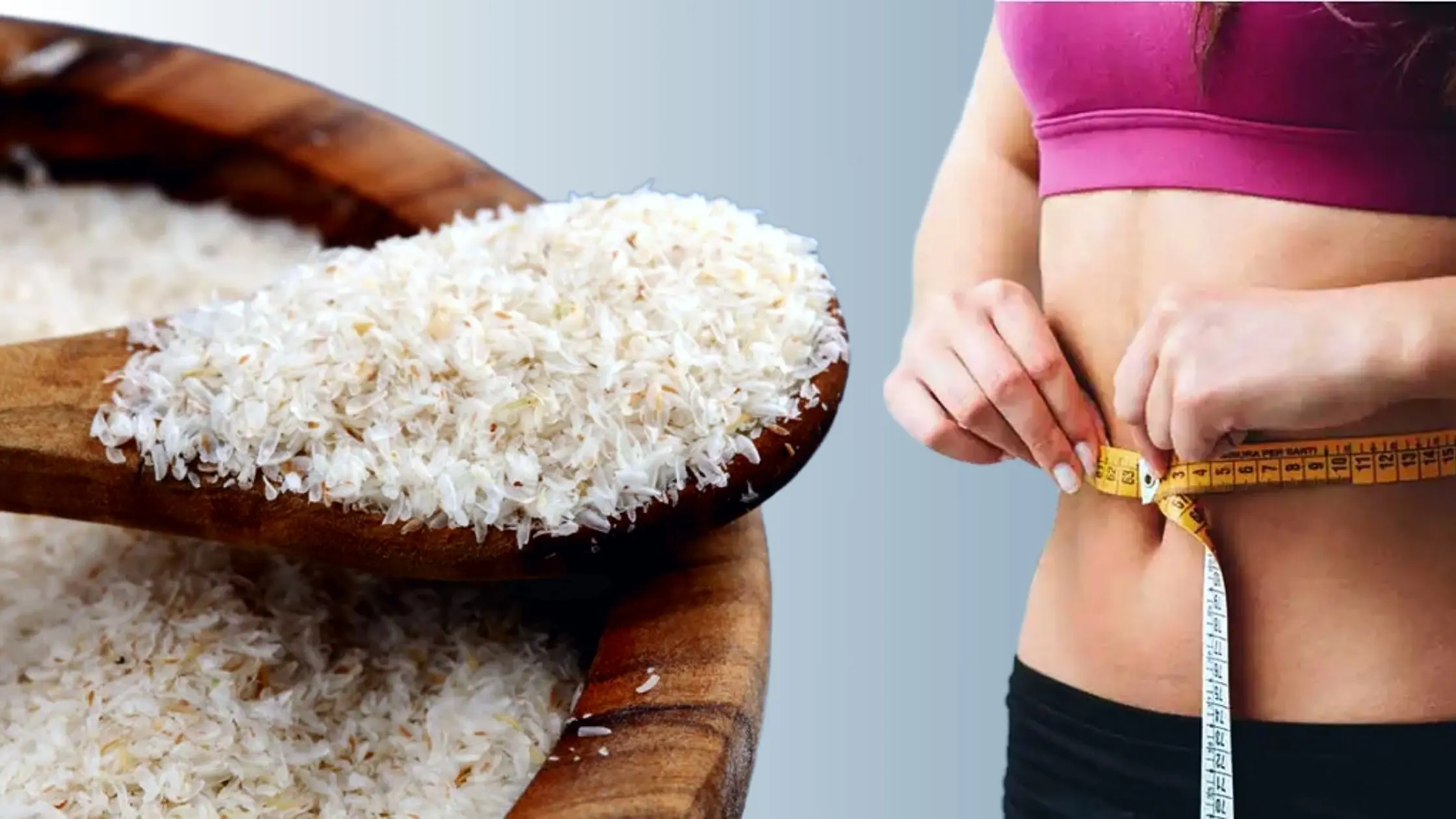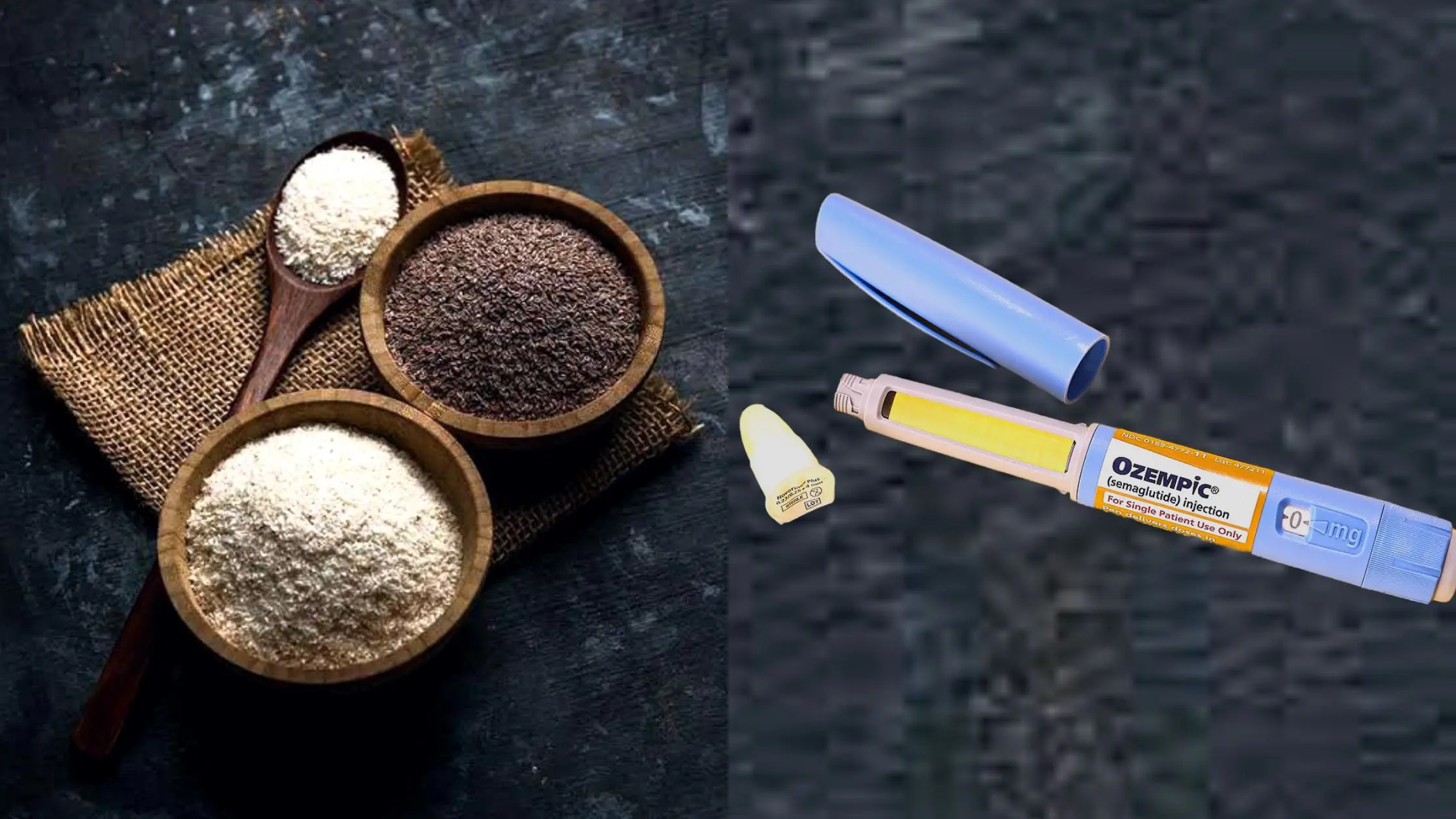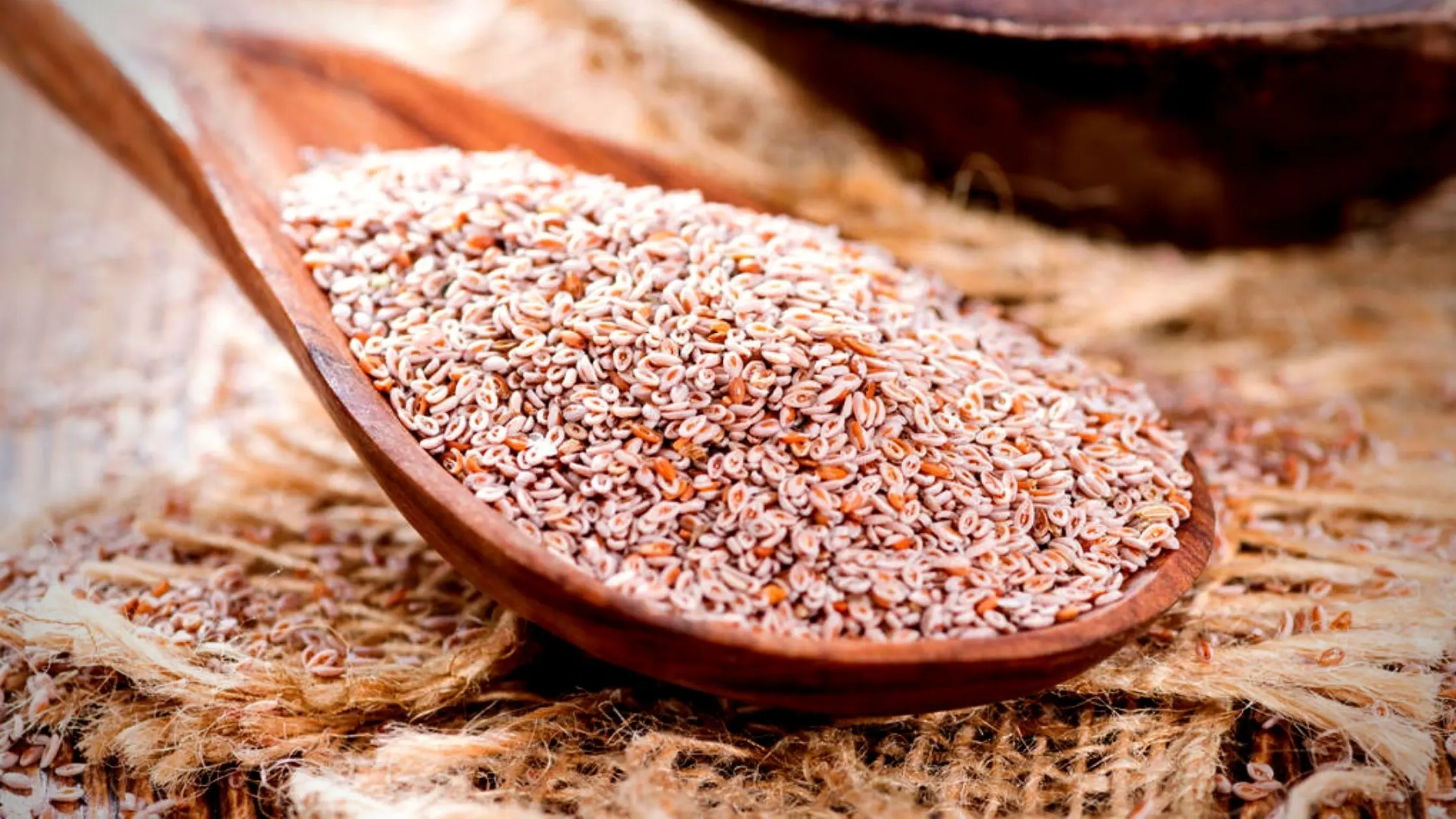With over 70% of adults in the United States currently overweight or obese, sustainable and accessible weight loss strategies are needed. One potential aid that science continues highlighting is psyllium husk – a type of soluble fiber supplement sourced from Plantago ovata plant seeds.
As research accumulates, psyllium husk shows promising effects for facilitating weight loss through mechanisms like appetite suppression, slowed digestion, improved blood sugar regulation, and cholesterol reduction.
Easy incorporation into shakes and foods alongside its low cost contributes to psyllium’s viability as a weight loss tool. This article presents an overview of psyllium husk, synthesizing current evidence and guidance around safe, effective protocols to maximize utility for those using it to amplify diet and lifestyle efforts.
What is Psyllium Husk and How Does It Promote Weight Loss?
Psyllium husk is a type of water-soluble fiber derived from the outer covering of Plantago ovata plant seeds. It contains a rich mixture of polysaccharide compounds that have remarkable abilities to absorb water, swell up, and form a thick, viscous gel. This gel-forming fiber is what gives psyllium its therapeutic effects, from appetite suppression to healthy digestion.

Several interrelated mechanisms make psyllium husk an excellent addition to a weight loss regimen:
The combined benefits of hunger control, decreased calorie intake, balanced blood sugar, and improved gut health all contribute to accelerated and sustainable fat loss over time.
Side Effects and Safety Considerations
Psyllium is very well tolerated in most people when used properly, especially when adequate fluid is consumed in doses. However, some possible adverse effects include:
While psyllium husk presents an exceptionally safe supplement overall, it’s still wise to consult your physician before using it if pregnant, nursing, or have chronic digestive conditions. Parents should also take care to ensure proper dosing and preparation for teenage consumers.
Psyllium Husk Benefits Beyond Just Losing Weight
In addition to aiding weight loss, supplementing with psyllium husk offers a diverse array of additional benefits:
Cholesterol Reduction
Several meta-analyses of numerous studies show consistent LDL (bad) and total cholesterol reduction with regular psyllium use:
- Daily doses between 5-10 grams lowered LDL cholesterol between 5-9% on average.
- Total cholesterol also dropped close to 7% among hypercholesterolemic subjects.
- Mechanisms likely involve bile acid secretion and reduced cholesterol absorption in the liver.
Blood Glucose Management
Multiple studies demonstrate robust reductions in blood glucose levels and long-term indicators like HbA1c among those with type II diabetes:
- A dose of 15g daily cut HbA1c an average of 0.8% over 6 months.
- Most results show fasting blood glucose dropping between 25-50 mg/dL with regular use.
- This illustrates psyllium’s utility as an adjuvant therapy alongside diabetes medications.
Heart Health Protection
Beyond cholesterol and glucose control, psyllium intake confers additional cardiovascular benefits:
- Modest reductions in blood pressure were observed in both hypertensive and non-hypertensive individuals.
- Decreased inflammation signals are tied to atherosclerosis risk.
- Improved blood flow and endothelial function.
Relief from Constipation
Increasing stool bulk and moisture along with stimulant effects make psyllium an effective treatment for occasional and chronic constipation:
- Significantly increased bowel movement frequency and easier passage of stools.
- Reduces painful symptoms of hemorrhoids and anal fissures.
- Also been shown to help manage IBS-related constipation.
The multitude of benefits make psyllium husk supplementation attractive not just for weight loss but overall health, digestion, blood sugar control, and cardiovascular wellness.
How Does Psyllium Husk Compare to the Popular Diabetes Medication Ozempic?
Ozempic is an increasingly popular type II diabetes medication used to manage blood sugar, insulin resistance, and weight. As an injectable GLP-1 drug, it activates receptors that stimulate insulin secretion while suppressing appetite. However, it comes with notable downsides:

- Expensive without prescription drug coverage
- Common side effects like nausea, vomiting, pancreatitis
- Unknown long-term consequences of manipulating GLP-1 pathways
While Ozempic promotes weight loss rapidly, the lack of affordability and risks of adverse effects make it less than ideal for many. This is where psyllium husk offers advantages as a much safer and gentler option that enhances weight loss through complementary physiological mechanisms. Though more modest in potency, psyllium amplifies the body’s natural appetite control and blood sugar balancing functions.
| Ozempic | Psyllium Husk | |
|---|---|---|
| Soluble fiber | No, Injectable prescription medication | Yes |
| Appetite suppression | Yes | Yes |
| Slowed gastric emptying | Yes | Yes |
| Improved blood sugar control | Yes but modest | Yes, very effective |
| Weight loss aid | Yes, moderate | Yes, very effective |
| Requires prescription | Yes | No |
| Common side effects | Bloating, diarrhea | Nausea, vomiting, gallstones |
| Cost | Expensive | Inexpensive |
Other newer supplements like PhenQ also mimic the effects of prescription medications using plant-derived ingredients. With clinically studied compounds that accelerate fat burning, and curb hunger, and blood sugar spikes, PhenQ provides another viable natural alternative to potentially risky GLP-1 diabetes drugs.
Proper Dosing and Usage of Psyllium Husk
The standard supplemental dosage for psyllium husk powder is approximately 5-10 grams daily, split into multiple doses throughout the day. This equates to around 1-2 teaspoons per serving. To maximize benefits it should be:
These four steps optimize effects and tolerability. To further minimize potential side effects, psyllium doses should be ramped up slowly over 7-14 days in those new to higher fiber consumption.
Effects accrue over time with sustained daily use, generally providing maximal benefit within three to four weeks. Though a useful addition anytime for healthy digestion and regularity, taking psyllium husk supplements approximately 15-30 minutes before meals may enhance appetite-regulating effects.
Read More: 15 Natural Strategies For A Successful Weight Loss Journey
Who Can Safely Consume Psyllium Husk?
Most healthy adult men and women tolerate psyllium husk supplements well when following prudent precautions regarding dosing and hydration. Parents should exercise caution with dosing for teenagers – though likely safe, consumption should be supervised to ensure proper preparation and prevent choking hazards from insufficient fluid intake.
Healthcare provider guidance is also recommended for pregnant or nursing women until definitive safety data during pregnancy and lactation exists.
Those with difficulty swallowing could experience choking if taking poorly mixed psyllium-containing visible husk particles. It’s also imperative for consumers taking any routine prescription medications to separate psyllium consumption by at least two hours to prevent impaired absorption.
Assuming adequate hydration and cautious use among higher-risk groups, however, psyllium husk remains very safe for use by healthy adults seeking dietary and weight loss benefits.
Read More: The Surprising Benefits Of Aloe Vera Juice for Weight Loss
Final Verdict
An Effective, Natural Weight Loss Tool When used properly, psyllium husk is a safe, affordable, and well-tolerated supplement that can amplify weight loss through several mechanisms. Benefits may include appetite suppression, reduced calorie absorption, balanced blood sugar, and improved gut health. It also lowers cholesterol and blood pressure for whole-body wellness.
While not a miracle cure, psyllium husk serves as a useful addition to a lifestyle plan of a healthy diet and regular activity. It reinforces weight loss efforts driven by a calorie deficit, with few side effects. Results require consistency just like diet and exercise changes. Most people see benefits from sustained use over 2-4 weeks.
Overall psyllium husk ranks as a top-notch prebiotic fiber and natural laxative that pulls “double duty” for supporting healthy digestion and weight management. It serves as a wise investment for those seeking to optimize gut health, blood sugar regulation, heart wellness, and reach a healthy weight.
Frequently Asked Questions
No direct evidence shows psyllium binds to or traps dietary fat molecules. However, it may modestly reduce fat absorption due to its viscosity and gel-forming properties in the small intestine. The level of impact likely depends on the person and meal content.
People with swallowing disorders, digestive blockages, very low fluid intake or certain medication regimens should avoid psyllium. Those with new-onset digestive symptoms should check with a doctor before starting supplementation, as should pregnant women and very young children.
Yes, daily consumption of recommended supplement doses from 5-10g spaced throughout meals is considered safe for otherwise healthy adults and teenagers. This provides sustained prebiotic and weight management benefits. Stay very hydrated and build up slowly if new to use.
Key things to avoid include inadequate fluid intake – drink ample water with psyllium. Allow separation between doses of medications. Introduce psyllium slowly if susceptible to bloating or gas – start low at 1g per day. If any severe reactions occur such as breathing issues or swelling, discontinue immediately.
The highest natural food sources include the outer husks of psyllium seeds, found in some cereal or granola products. However, levels are often too low to provide therapeutic fiber amounts. Supplements ensure more accurate, effective dosing. Some baked goods feature added psyllium but check labels for amounts.

